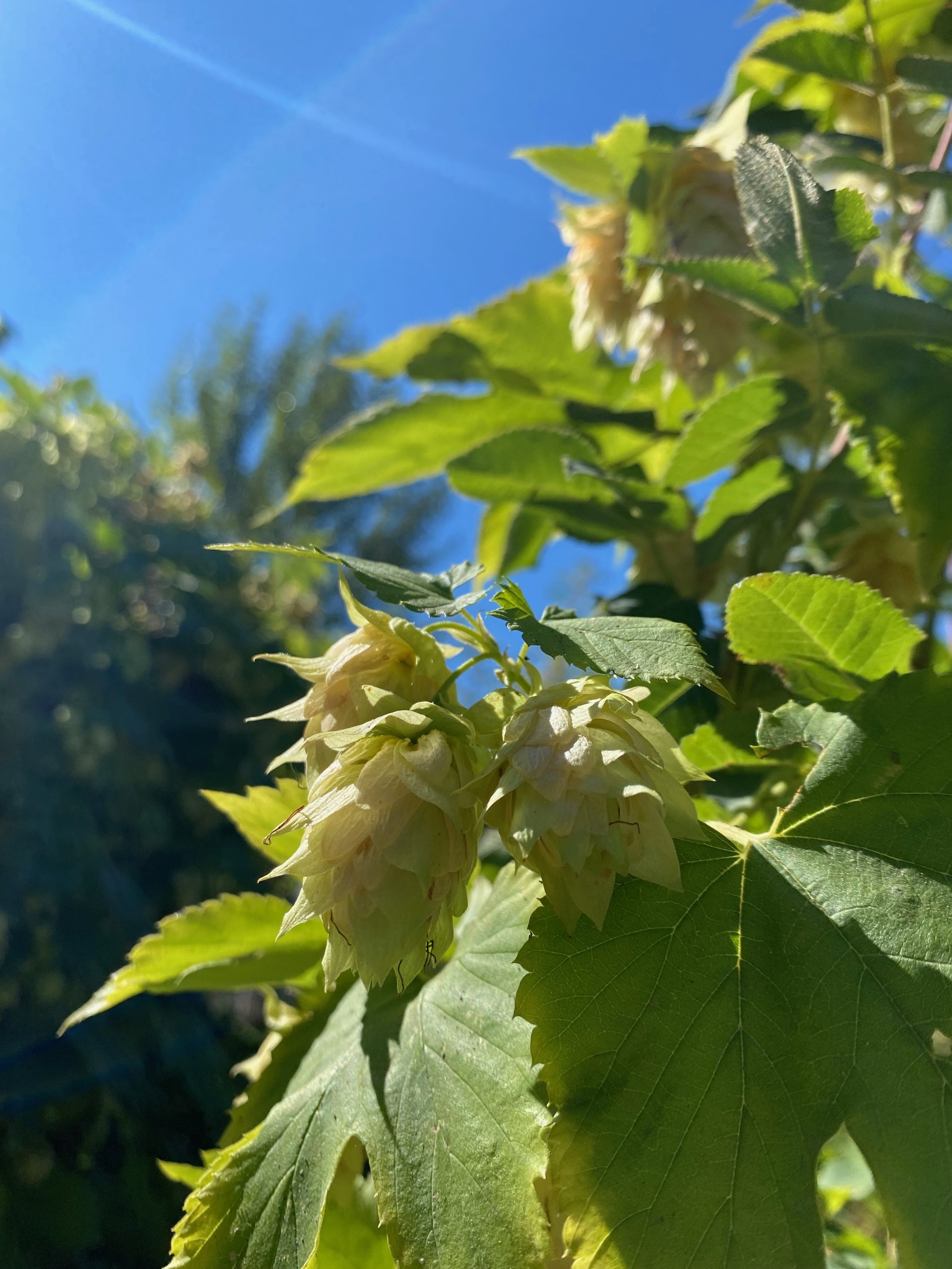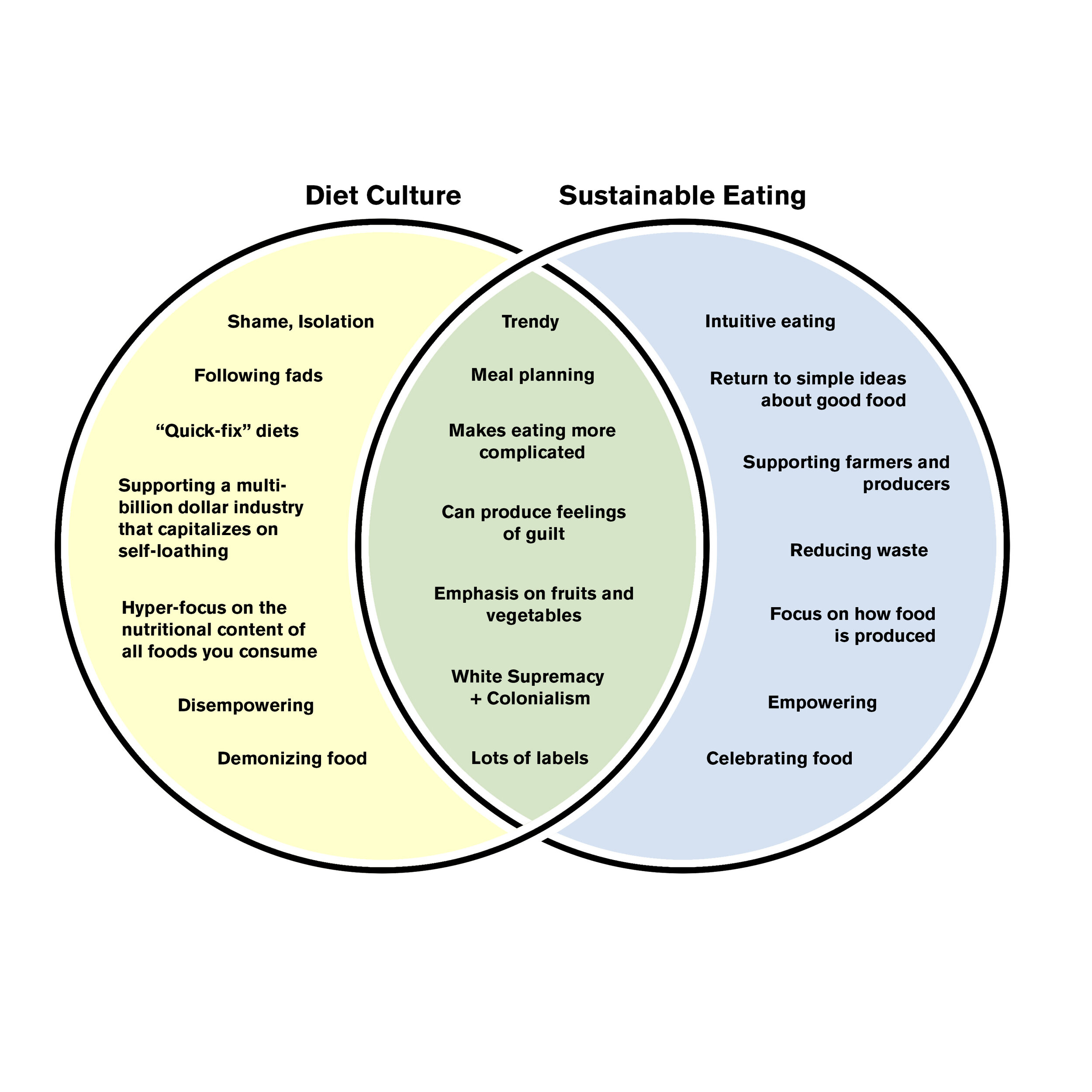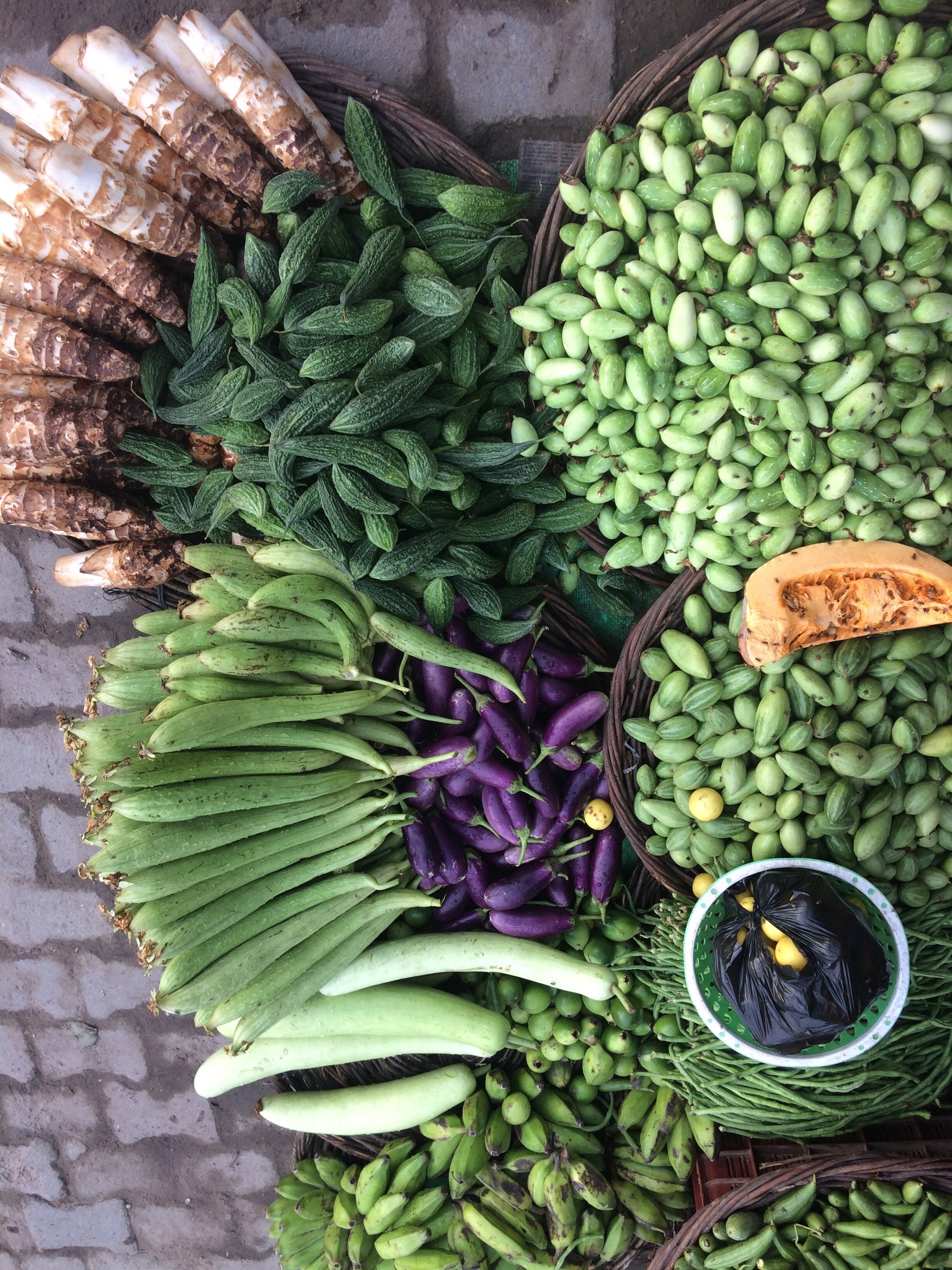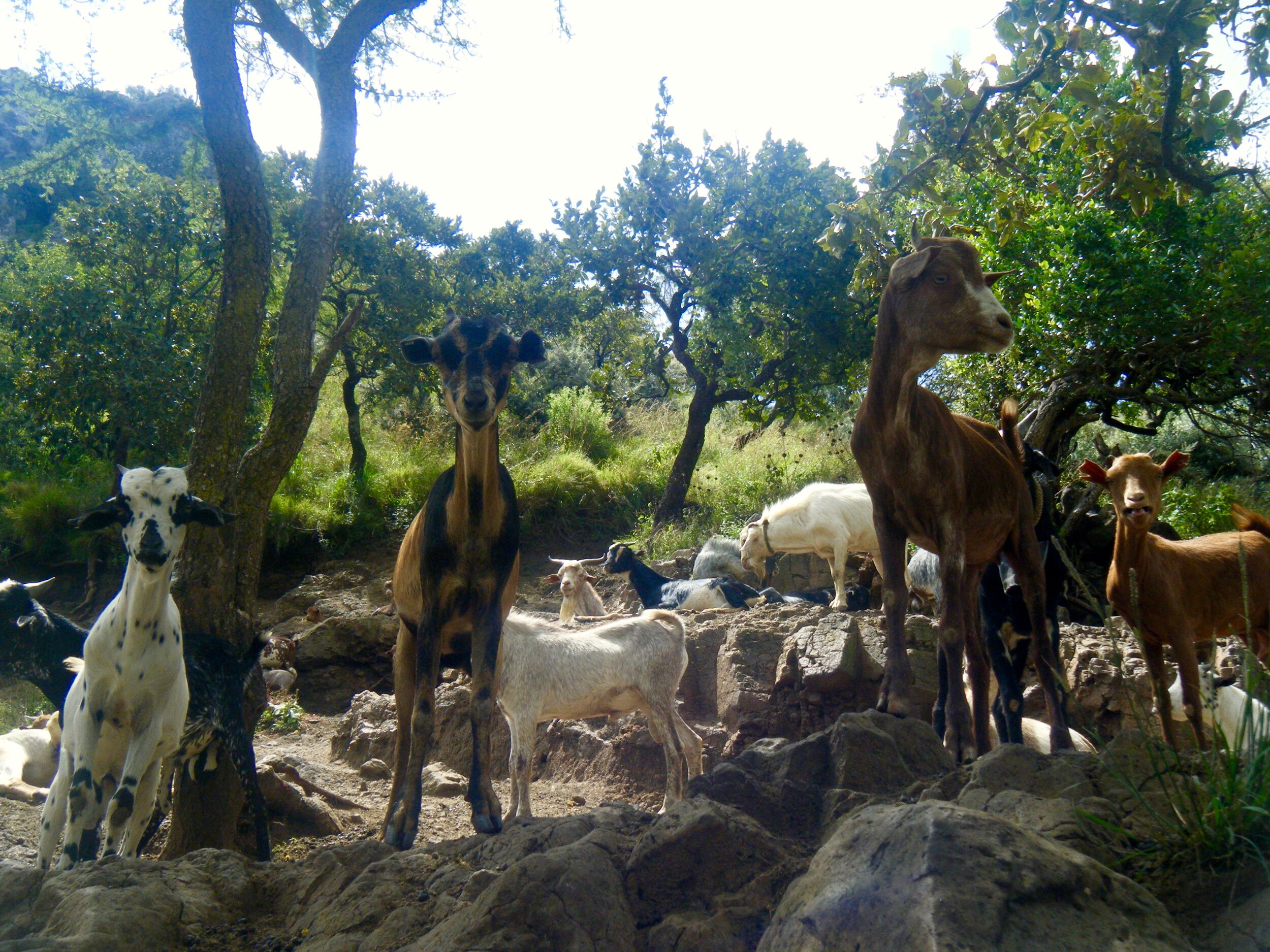
Considering More Than Just Carbon
While the “carbon footprint” metric has been really valuable in communicating the impacts of actions on our environment to the general public, it also lacks the nuance that is required in decision-making around sustainable practices. Focusing on carbon is helpful for understanding how actions will effect global climate change, but we need a much more holistic approach to evaluating our impact if we hope to really understand the environmental, social, and economic impacts of our actions. When we focus too much on carbon, we risk losing focus on things like safe and clean water, food sovereignty, regional resilience to traumatic events, and other essential parts of how our food system interacts with our environment and people!

Seeing the Forest for the Trees
For one reason or another, we all sometimes stray from our personal status quo. But learning to balance our reality with our expectations can create a healthier, more sustainable relationship with sustainability.

Frozen Foods in a Volatile World
Especially in the United States, we channel a lot of our personal identity and our feelings about the world into the things we buy. From clothes to cars, we believe our purchases reflect who we are. In the case of food, we have the opportunity three times a day to either use food purchasing or consumption to signal who we are, or to reflect how we feel about the world. In a volatile changing world due to the pandemic, it makes sense that frozen food purchasing is on the rise!

I am Not a Tractor: Book Review
Guest contributor, Colleen Alexander, takes us into Grounded Grub’s first ever book review. Through the review of I am Not a Tractor! How Florida Farmworkers Took On the Fast Food Giants and Won by Susan L. Marquis readers can get a better understanding of the conditions in which Florida tomato farmworkers are working and the efforts to create better working conditions for farmworkers .

A Campaign to Redefine “Chinese Restaurant Syndrome” and Stifle Xenophobia
This past year, a campaign to redefine “Chinese Restaurant Syndrome” (CSR) was launched by activists around the world. CSR is actually defined in the Merriam-Webster dictionary as “a group of symptoms held to affect susceptible persons eating food heavily seasoned with monosodium glutamate”. The campaign’s argument is that this definition is not only scientifically false, but that it also upholds the racism and xenophobia that spawned the term in the first place.

Unpairing Sustainability from Diet Culture
We take diet culture and sustainable eating head on, address how they can seem similar, and how we hope you’ll be able to distinguish them based on core tenets and values. This is an update of a December 8, 2019 article.

The Colonial Language of White Food Culture
A lot of white food bloggers, nutritionists and chefs talk about “discovering” new recipes that are almost always deeply established in tradition and history. White folks writing about “new” foods, “discovered” ingredients, and recipes they’ve “stumbled upon” is a form of colonialism.

Making the Most of Your Food: Lessons on food waste from Karamoja, Uganda
Contributor Tara Hammonds shares lessons learned about our relationship with meat, food waste, and making the most of resources during her time living and working in Uganda.

The Messiness of Eating “Clean”
“Clean” eating—eating free of chemicals and preservatives—is increasingly popular and can be a healthy way to eat more fruits and vegetables. But this dieting philosophy has morphed into some extreme cases that have toxic implications when it comes to equity and respecting cultural foods.

In Defense of Dairy
Contributor Maddy Kinnear shares her perspectives on supporting the dairy industry and the role that it can play in a sustainable agriculture system.

The Missing Link in Healthcare
Contributor Jenna Bensko writes about the missing link between food and health and our treatment of chronic disease. She shares her intimate background with food and nutrition and what she sees as the future of the Food is Medicine movement.

Is the Ugly Produce Movement as Beautiful as it Seems?
Eating ugly or imperfect produce is trendy and pitched as a way to solve issues of food waste… But are there other implications of this movement on the rest of our food system?

Flexitarianism & Food Identity
What does flexitarian even mean? We take apart this loosely defined word, and also reflect on questions of food-as-identity. How did we find ourselves identifying so strongly with the food we put in our body? How can we continue to dialogue across differences?

Unpairing Sustainability from Diet Culture
We take diet culture and sustainable eating head on, address how they can seem similar, and how we hope you’ll be able to distinguish them based on core tenets and values.